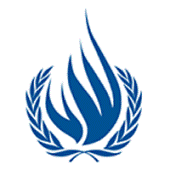Two years ago, the U.N. created the "Human Rights Council" to replace the erstwhile "Human Rights Commission." One of the instruments that the new body was given in order to overcome the glaring failings of its predecessor is the so-called country review. In the periodic reviews, the human rights record of each of the 192 U.N. member states is examined and recommendations are made for improvement. The review sessions are supposed to be marked not by the rich Western democracies making paternalistic and condescending reproaches against the world's most brutal governments and most notorious rogue states, but rather by a dialogue among equals. According to the fantasy vision of the body's founders, in such an atmosphere of mutual respect the spirit of tolerance and understanding will be able to thrive and, as if through the calming influence of successful group therapy, one country after another will take up its place in the candle-lit procession of human rights defenders. In a session that took place earlier this month in the presence of Swiss foreign minister Micheline Calmy-Rey, Switzerland was one of the first countries to undergo its examination. But the three-hour debate in the Palais de Nations in Geneva was anything but a shining example of the healing power of unconstrained discussion. Instead, the session more nearly resembled a sort of Kafkaesque theater of the absurd. Each of the approximately 40 diplomats taking part was given two minutes to present the observations of their respective countries. Their remarks were for the most part guided by ideological considerations or political self-interest and constituted a mix of grotesque misrepresentation, dishonesty and ignorance. On the whole, the diplomats painted a picture of a Switzerland that, while indeed trying to do better, nonetheless found itself in an alarming condition as far as the upholding of human rights is concerned. The most diverse countries thus encouraged Switzerland to establish as soon as possible a countrywide "independent human rights institution," which could observe, record and denounce human rights violations. The emphasis on the "independence" of the institution suggests that the council members regard the existing Swiss authorities and laws as somehow "dependent": which is to say, incompetent, partisan, corrupt and the like. The recommendations were made by countries like Germany, Malaysia, Mexico, India, Algeria, and Saudi Arabia. As well as, for instance, Mauritania: A state that suffers from acute corruption, self-created famines and slave-labor and whose veiled representative was, nonetheless, kind enough to concede that Switzerland had made some progress in the "gender area."
Switzerland on Trial: A Day in the Life of the U.N. Human Rights Council

